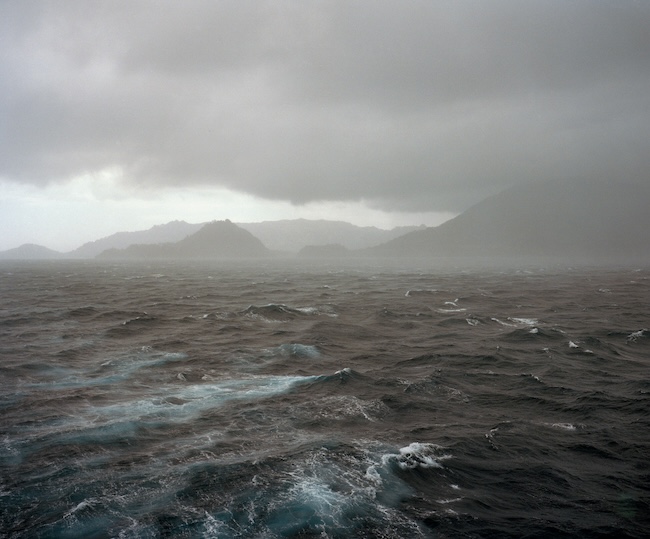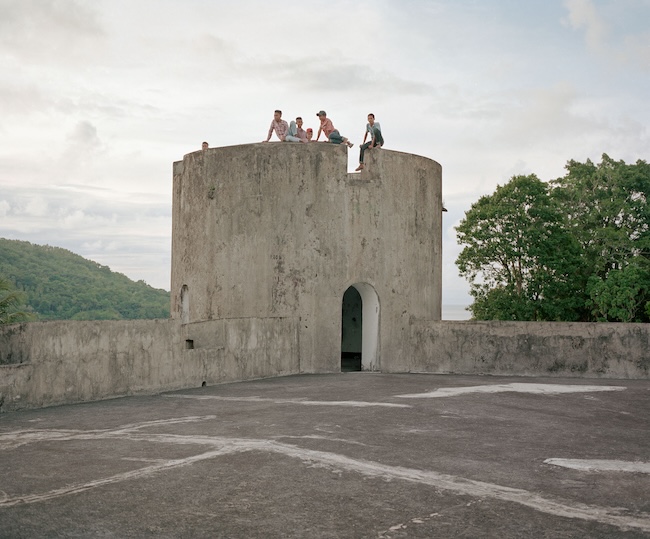An interview with Muhammad Fadli
In 2021 the West Sumatran photographer Muhammad Fadli and journalist Fatris MF, published an innovative documentary project called The Banda Journal. Through photography, textual narratives and film, this multimedia project sought to reflect on the 400th anniversary of the VOC-led Banda Massacres. This violence took place in the context of the VOC’s pursuit of a monopoly over the nutmeg trade in the Banda Islands. Katherine McGregor interviewed Muhammad Fadli to talk about the project and its decolonial dimensions.
KMcG: Firstly, can you tell me about the inspiration for The Banda Journal and what aspects of history you sought to emphasise in this work and why?
One thing that really inspired us to produce this journal was the history of the colonisation of the Indonesian archipelago. I have been interested in this history since junior high school, and through my work as a documentary photographer. I became more aware of the Banda islands after my collaborator Fatris MF visited there when he was working on a tourism related piece. I kept reading more about it and got really interested in the history of the colonisation of this island and all the other spice islands and how this was related to the rise of capitalism.

There was not much written about this history and some of the popular historiography was very racist and glorified this history, so that made us more motivated to make a documentary about it. We are not Bandanese, but we felt we could offer one way to tell the story about this island. This was one of the earliest European conquests in Asia so that was very interesting to me.
I think there is also a connection in terms of this history and the way people are still treated by companies. It’s like this country is still being run by the VOC until today. I mean people in many parts of Indonesia are still exploited. For example, mining companies come and exploit natural resources, take everything, and leave behind destruction just as they did in Banda. And of course, at first people think that it will be for their own good, but it's only for the company’s good. If you see how coal mining works all over Indonesia, it’s horrible, just horrible. They promise to create jobs, and they do temporarily, yes. But they also leave massive destruction and the work they provide is usually low paid. It’s basically quite similar to what happened in the VOC era when they tried to monopolise the nutmeg trade. The VOC oppressed the local population, occupied their land, and exploited everything until the trade dried up.
KMcG: Your project was connected to the 400th anniversary of the Banda massacre but that is only a small part of the focus of the journal, and it doesn’t just focus on colonial history, why is that the case?
You cannot say it’s a history book, because neither of us is a historian and it’s not only about history. It’s a documentary about the islands.
Fatris is a travel writer, so he tried to write the book in an accessible way. The idea was to make a book that even students at senior high school could understand the content. That’s important if you want to make people aware of the story. And it’s not a photobook either. It provides different entry points. If you are not into photos, you can read the text or if you like photos you can look at them first.
The focus of the book was also the aftermath of what happened in the past right up until today. It’s about the Bandanese today, and how they have managed to endure after the demise of nutmeg as a highly prized global commodity. That includes not just the people who remain on Banda until today, but also the communities that migrated to Banda Eli on Kei Besar Island as a result of the genocide by the VOC. Showing the state of the islands today is also part of showing the ongoing effects of this history, to make it relevant.
KMcG: The Banda Journal includes a website, a published journal but also a short film called Song from Another Land. Can you tell me about this film, which was recorded in the Banda Eli community and why you felt it was important to record local ways of remembering colonialism, as part of decolonial practice?
The film acts as an extension of the initial work we did in the Banda Islands. Once we found out that there were community members from Banda who fled to the Kei Islands after the 1621 massacre and still lived there, we felt compelled to tell their story as they are the direct descendants of the people murdered in 1621. We wanted to know more about them and what their life was like.
We went there and stayed in the village for eight days and spoke to different people. Then we found some people willing to sing us songs related to their connection to the Banda Islands. Some songs relate to the actions of the VOC Commander JP Coen who oversaw the massacres, but some are far more nuanced stories. These songs function for this community as a form of oral history. We found it interesting that they sang about very detailed things on Banda Island, which indicates to us local knowledge has been passed across the generations. For example, people knew there was no fresh water on Rhun Island (one of the main islands of Banda), but they had never been there. The songs were also sung in turwandan, the native language of Banda which no longer exists in Banda today.
This was the story in front of us, so we wanted to be open to local ways of telling the story through song even though that’s not the medium we are expert in. So, we decided to capture this in a short film. In the film, community member Mestika Latar sings about her family’s former village in Banda. She expresses sorrow about the past. A lot of songs are really sad. Most songs from Banda Eli are about people’s former home villages.
KMcG: As a photographer you seem quite reflective on the interventions you make and the history more generally of photography in relation to colonialism. Why is this important in your view and how does it influence your contemporary practice?
Before I started this project, I read more material on photography and its links to colonialism and more critical perspectives, which made me more aware of my own practice. For example, I read the Ariella Azoulay’s, The Civil Contract of Photography, in which she, as an Israeli writer, reflects on photographing Palestinians. By photographing someone it can be exploitative, but it can also give them a presence, especially for oppressed people. So, when we photograph a person, we owe them to tell their story and that is a key idea in the journal. We become indebted to the person whose photograph we take.

So today in my practice and for The Banda Journal I don’t just ask for permission to take a photograph. I usually give them more detail about why I would like to photograph them and whether it's personal or going to be published. I record their contact number in case something needs to be discussed later because although you are copyright holder, it’s their image. I think it’s important for people not to lose their agency regarding their depiction. In the case of The Banda Journal we first held a public exhibition in Banda to show the local community what we intended to include in the journal and to confirm their willingness to be represented.
KMcG: Finally, the Banda Journal was an independent self-funded project, why do you consider this work important?
I think it can act as a reflection for us that as a nation. We still have a lot of homework in relation to our own history and its legacies. We can fully see how colonial practices are being replicated by those in power right now. It is also really important for me as an Indonesian to tell our own story.
In Banda right now, as well, there is a move for more Bandanese artists to tell their own stories. One example is the artist Erzal. I think this is related to the accessibility of information as well. So Bandanese people can today get some inspiration from how other people approach their history and then can also respond by making their own work. With greater internet access I think there will be more engagement with the outside world and increasingly the Bandanese will create more historical knowledge about their own past.
Muhammad Fadli is a filmmaker and photographer. Katharine McGregor is a historian at The University of Melbourne. To access The Banda Journal website visit here.












